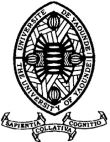Coïnfection Tuberculose et VIH Chez les Enfants de 0-14 Ans à l’Hôpital National Donka (Guinée)
Tuberculose et VIH chez les enfants à l’hôpital national Donka
DOI:
https://doi.org/10.5281/hra.v1i4%20Oct-Nov-Dec.4908Keywords:
co-infection, Tuberculosis, HIV, Guinea, ConakryAbstract
RÉSUMÉ
Introduction. La Co-infection tuberculose/VIH entraine de nombreux cas de décès en cas de prise en charge inadéquate. Les objectifs de cette étude étaient de décrire le profil clinique des enfants atteints de la co-infection TB/ VIH. Méthodes. Il s’est agi d’une étude rétrospective de type descriptif allant du 1er Janvier 2003 au 31 Décembre 2012, ayant porté sur 122 patients. Nous avons inclus tous les patients âgés de 0 à 14 ans hospitalisés et suivis pour tuberculose chez qui la sérologie VIH s’est révélée positive, et traité au service de pédiatrie de Donka durant la période d’étude. Résultats. La fréquence de la co-infection tuberculose /VIH était de 100%. Nous avons noté une prédominance masculine avec un sex ratio de 1,44. Les tranches d’âge de 1-4ans et de 5–9ans étaient les plus touchées soient respectivement 43,44% et 23,77%. La majorité de nos patients soit 106 patients (86,68%) avait les deux parents et 0,82% étaient orphelins de père et de mère. Parmi les signes cliniques majeurs, on a relevé la fièvre au long cours chez tous les participants, suivie de la toux. Les formes les plus fréquentes étaient la tuberculose pulmonaire, la forme lymphatique et la forme généralisée. Conclusion. La co-infection tuberculose/ VIH reste encore un sujet de santé publique en Afrique subsaharienne plus particulièrement dans notre pays en République de Guinée. Malgré les moyens thérapeutiques utilisés, elle est une cause majeure de mortalité chez les enfants VIH positifs.
ABSTRACT
Introduction. Tuberculosis/HIV co-infection leads to many in the event of inadequate care. The objectives of this study were to describe the clinical profile of children with TB/HIV co-infection. Methods. This was a retrospective descriptive study of 122 patients from January 1st, 2003 to December 31st, 2012. We included all patients aged 0 to 14 years hospitalised and followed up for tuberculosis in whom HIV serology was positive, and treated at the Donka paediatric ward during the study period. Results. The frequency of TB/HIV co-infection was 100%. There was a male predominance, with a sex ratio of 1.44. The age groups 1-4 years and 5-9 years were the most affected, respectively 43.44% and 23.77%. The majority of our patients, 106 (86.68%), had both parents, and 0.82% were orphans. The major clinical signs were fever for a long time in all participants, followed by cough. The most frequent forms were pulmonary tuberculosis, lymphatic tuberculosis and generalised tuberculosis. Conclusion. Tuberculosis/HIV co-infection is still a public health issue in sub-Saharan Africa, particularly in Guinea. Despite the therapeutic means used, it is a major cause of mortality in HIV-positive children.
Downloads
Published
How to Cite
Issue
Section
License
Authors who publish with this journal agree to the following terms:
- Authors retain copyright and grant the journal right of first publication with the work simultaneously licensed under a Creative Commons Attribution License CC BY-NC-ND 4.0 that allows others to share the work with an acknowledgement of the work's authorship and initial publication in this journal.
- Authors are able to enter into separate, additional contractual arrangements for the non-exclusive distribution of the journal's published version of the work (e.g., post it to an institutional repository or publish it in a book), with an acknowledgement of its initial publication in this journal.
- Authors are permitted and encouraged to post their work online (e.g., in institutional repositories or on their website) prior to and during the submission process, as it can lead to productive exchanges, as well as earlier and greater citation of published work










